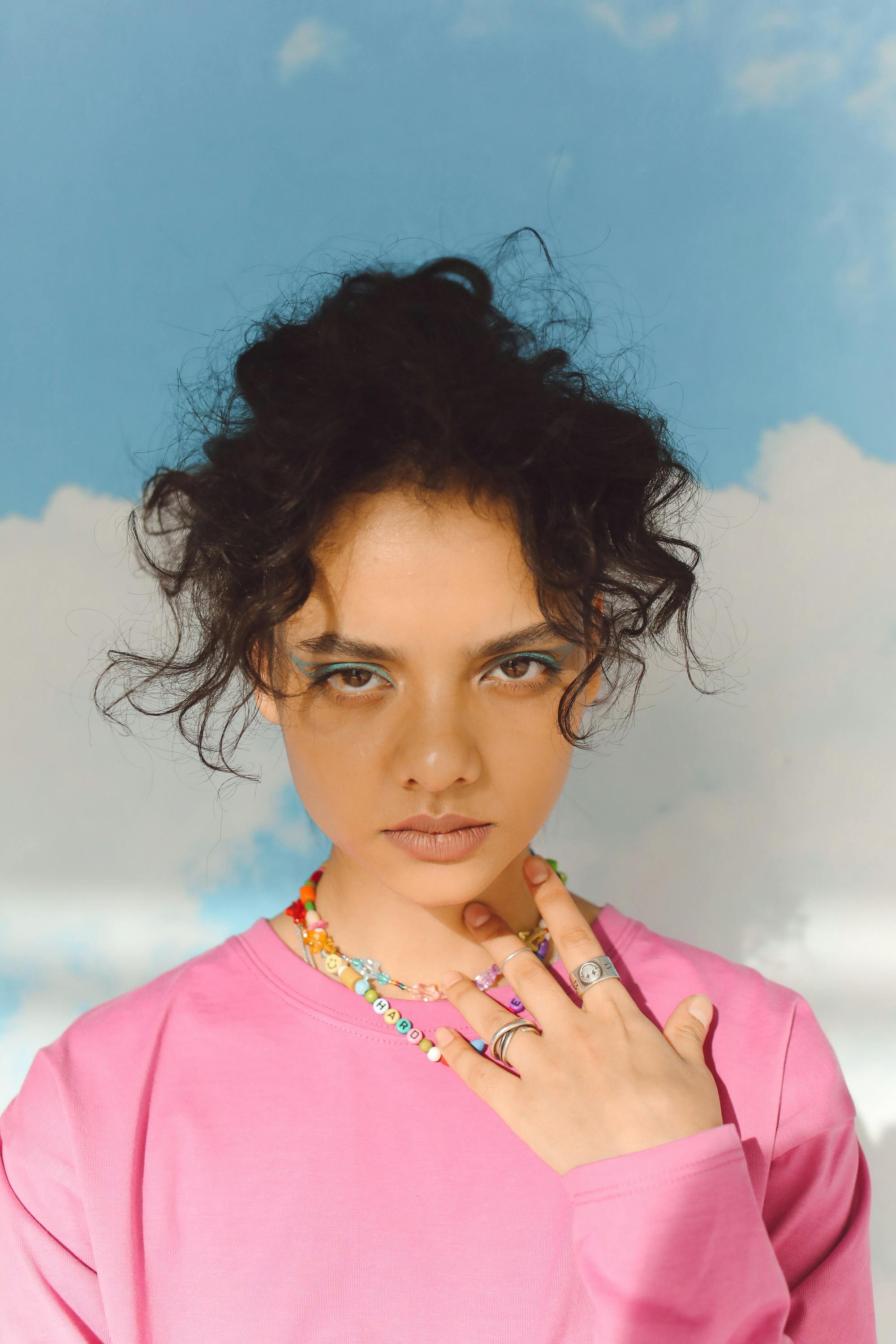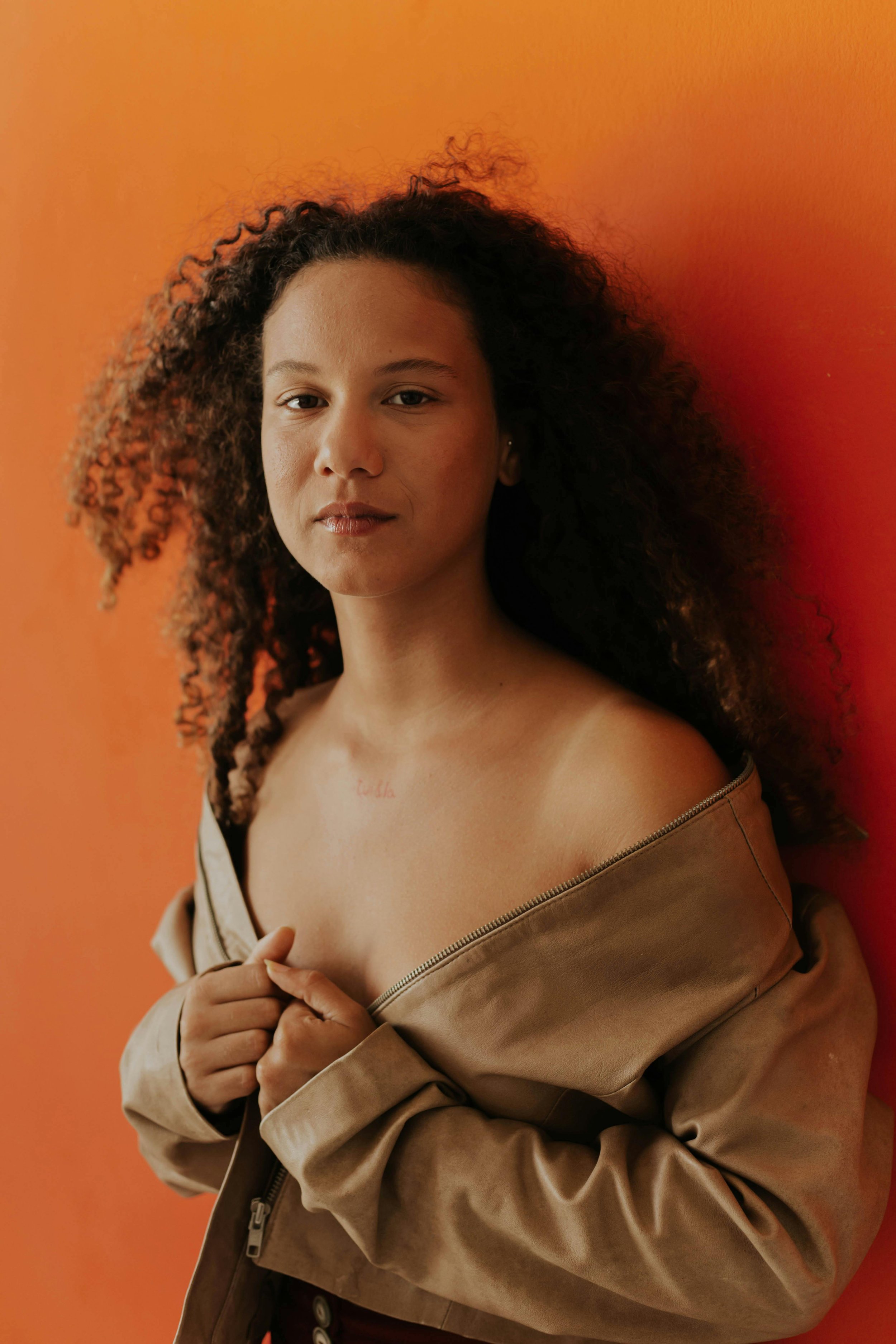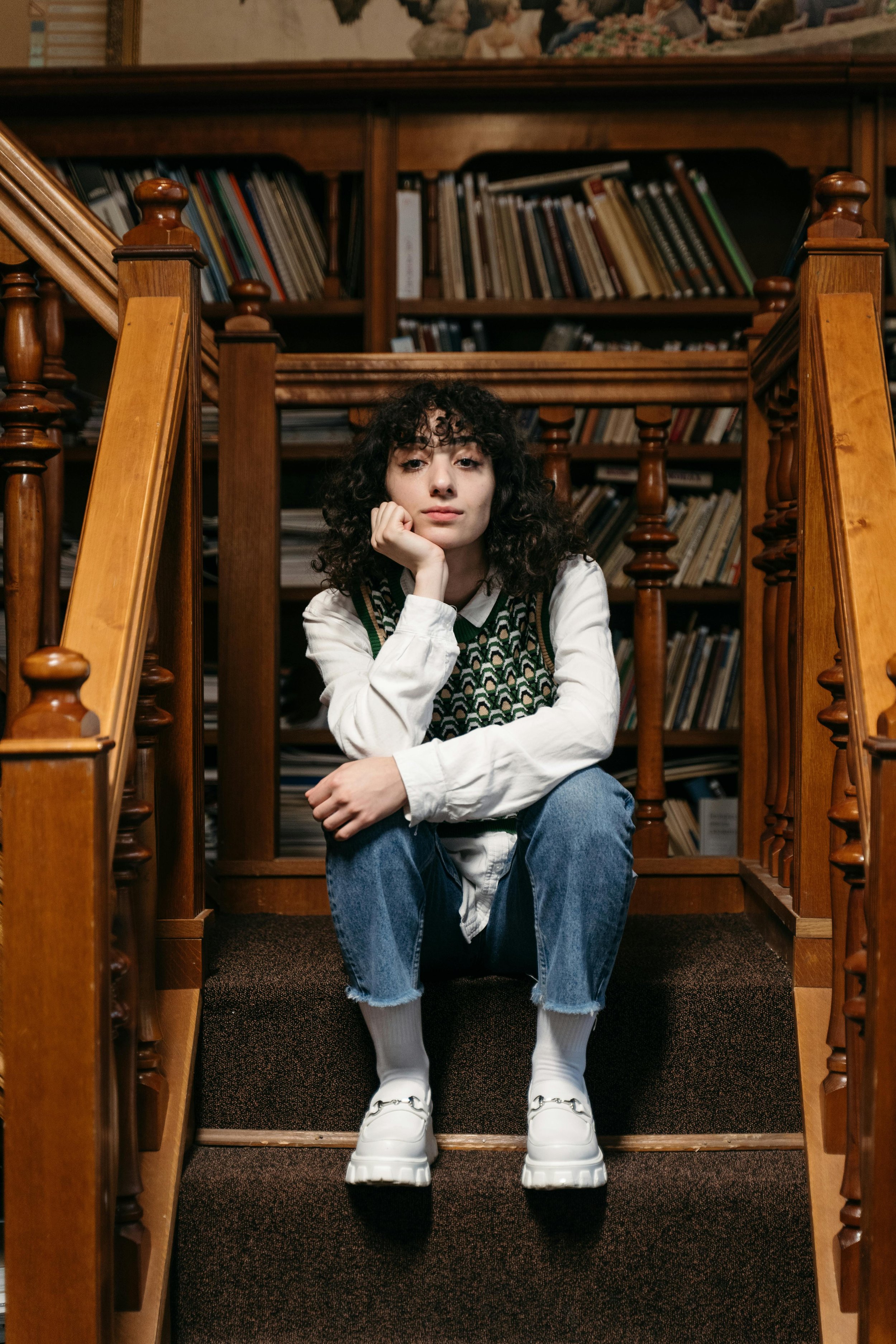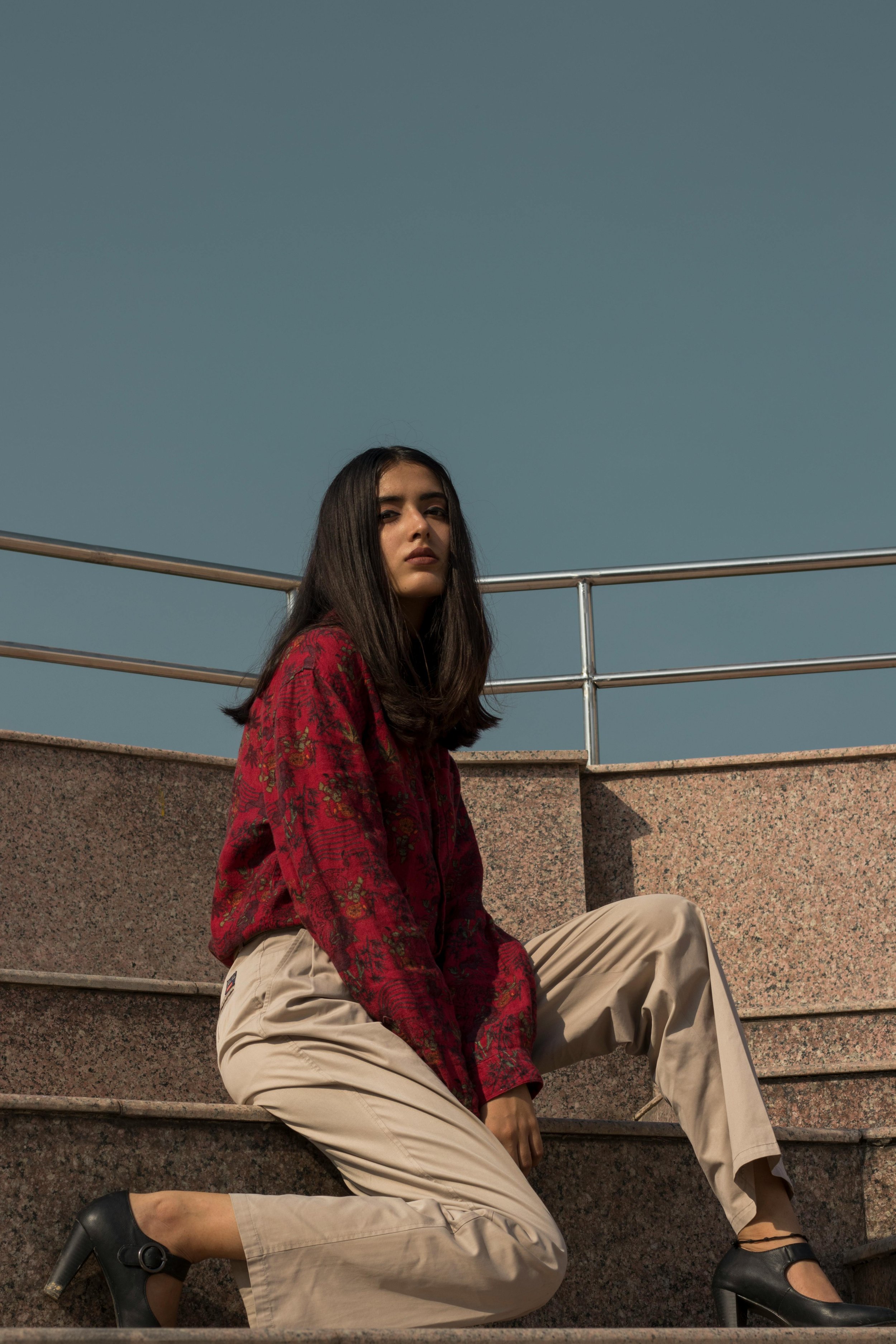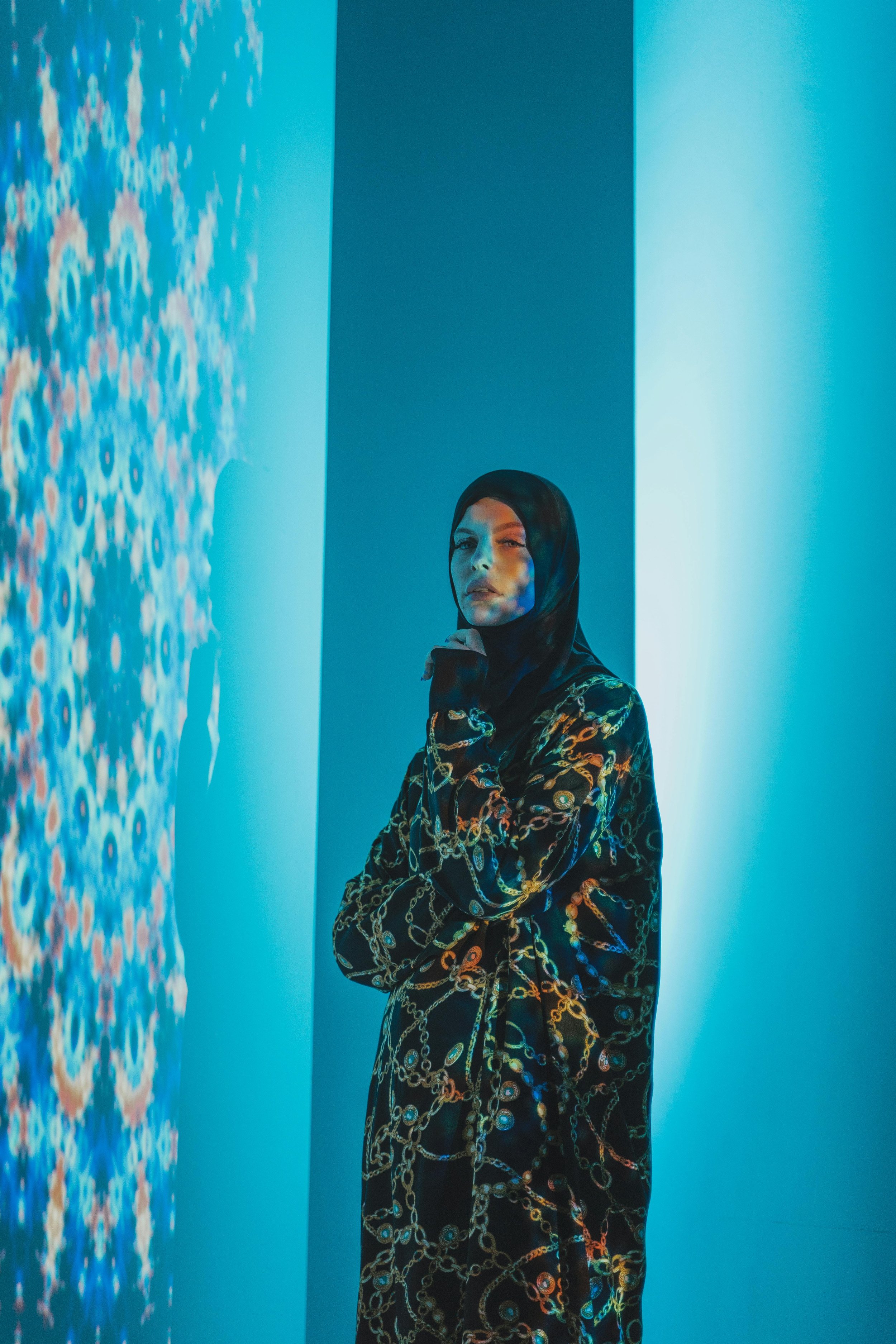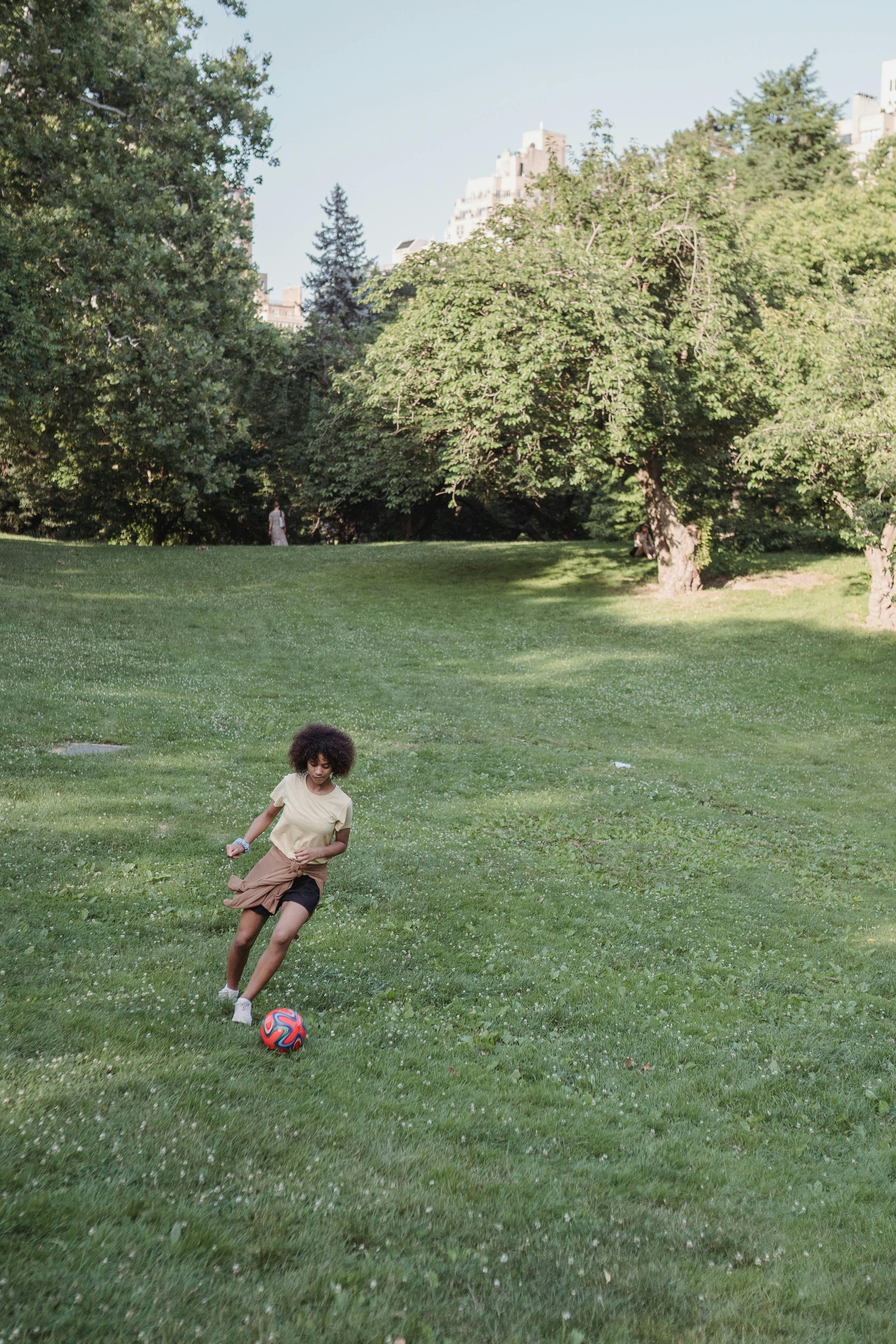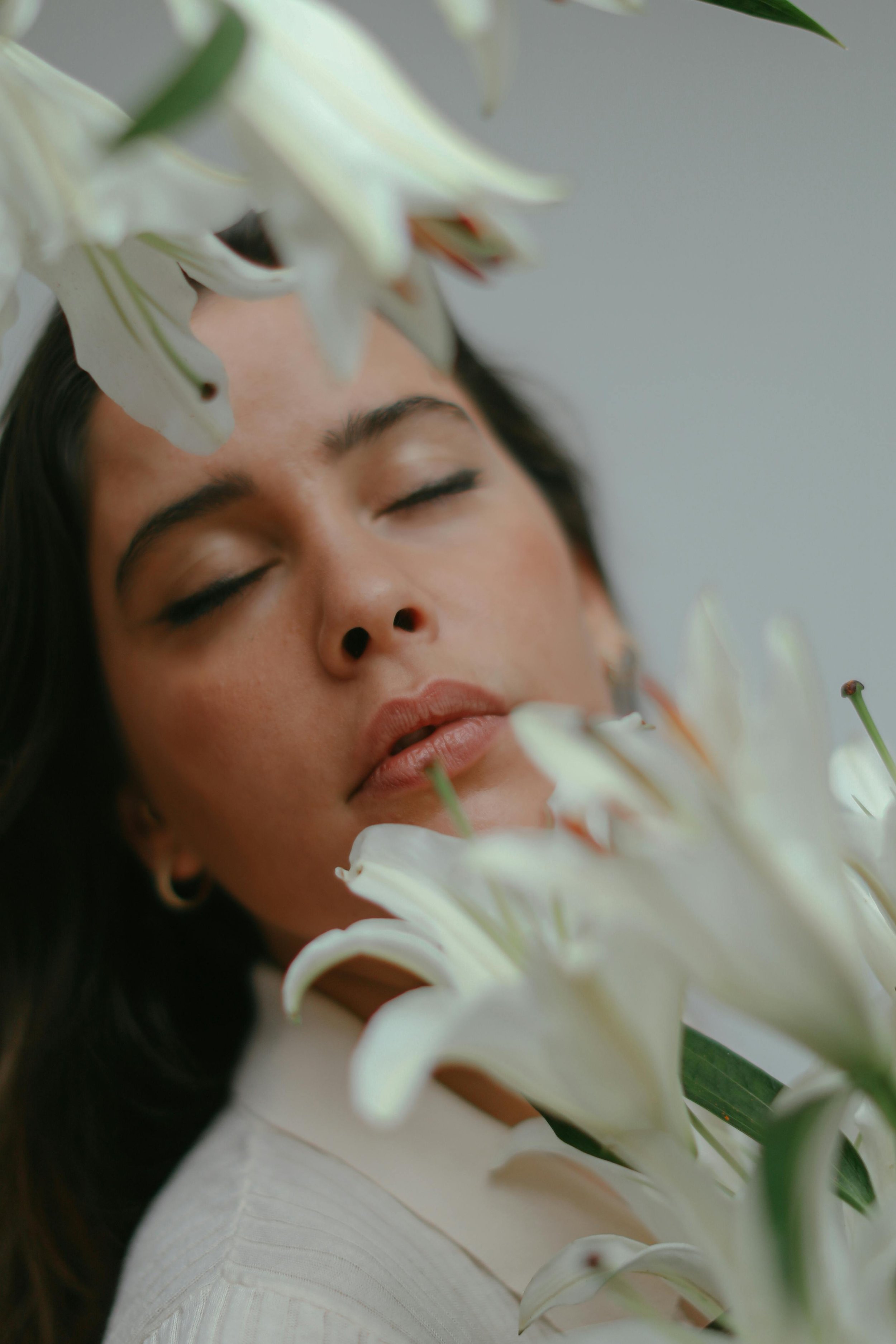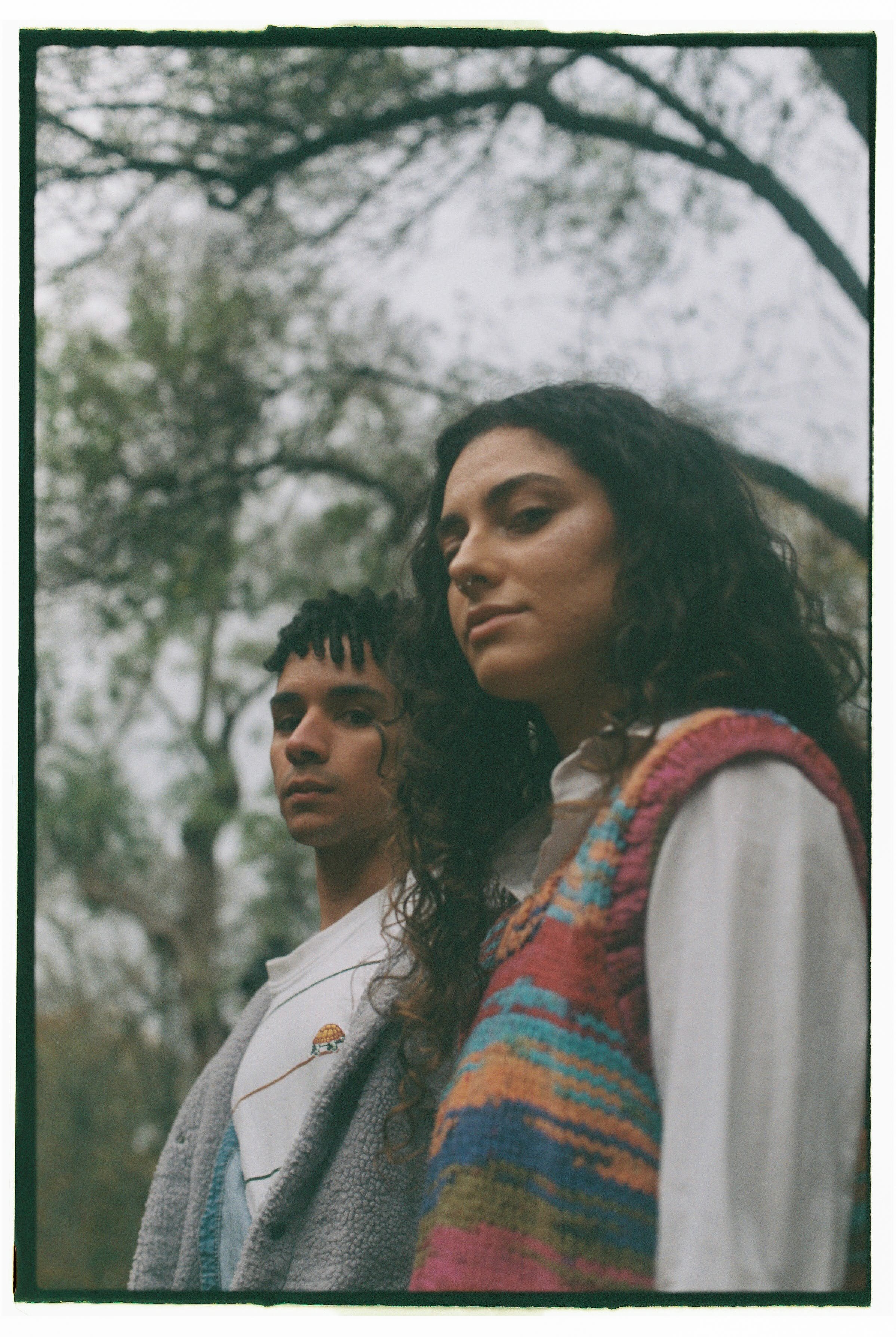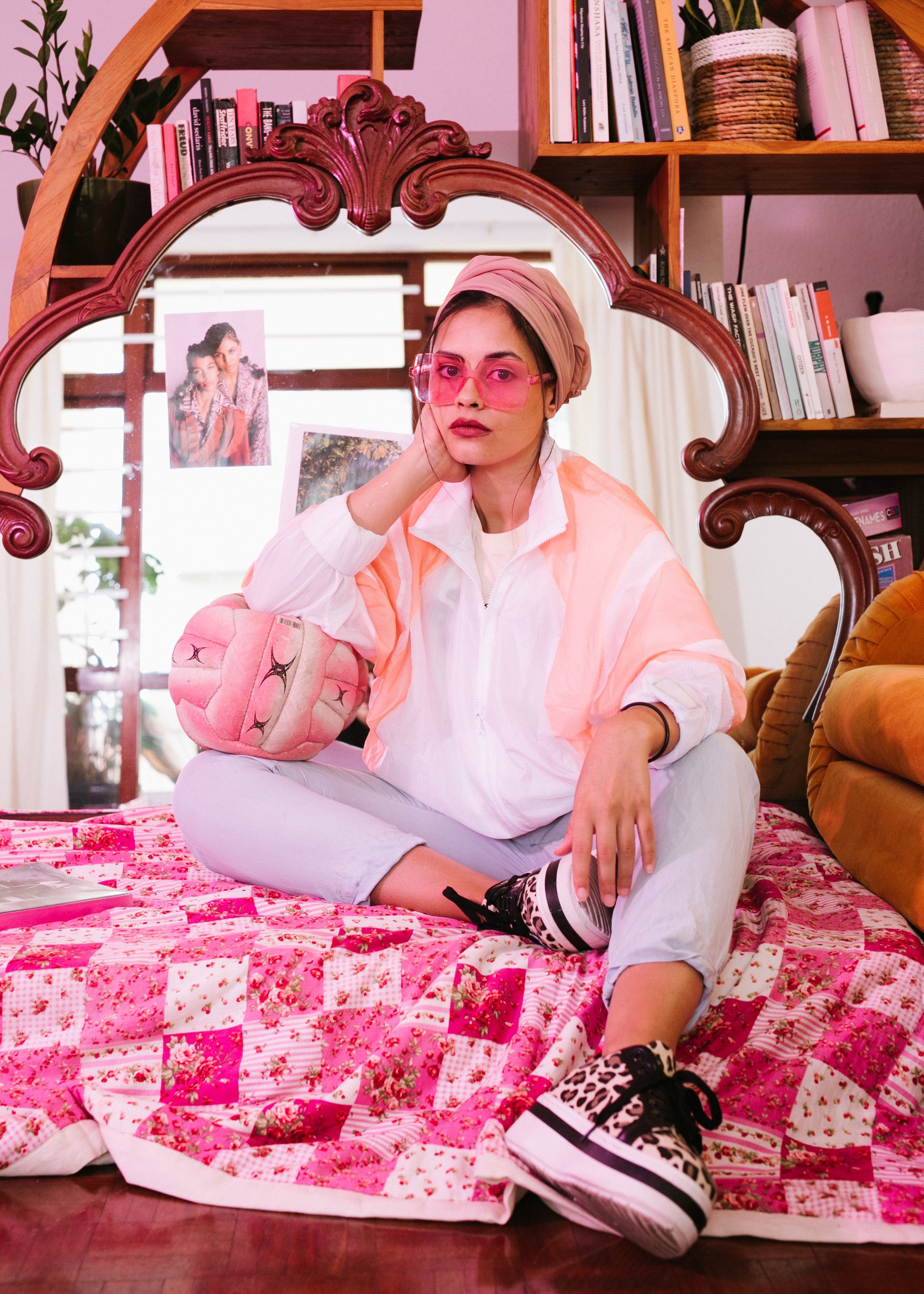
‘Can You Really Be a Queer Muslim?’: Intersectionality and the Complexity of Identity
‘A Veil is Simply One Form of Worship’: Reflecting on Faith and Femininity as a Christian Woman
Growing up, the church I attended regularly required women and girls who had taken their first Holy Communion to veil during services. They couldn't be removed until the final lines of the service were spoken. I wasn't a huge fan of having to cover my hair while the men were able to stay as they pleased. I sometimes wondered if it was a cultural difference – my family's church is Indian while other churches I visited were predominantly white…
From Appropriation to Appreciation to Acknowledgement: How to Respectfully Engage with Other Cultures
Elements of my South Asian culture that I was teased for growing up have become a part of the mainstream. I see fashion, yoga practice, chai spices, meditation, mindfulness and hair oils all bandied around as new ideas and new trends as if they haven’t been passed down through the generations of my family. Often, those adopting these practices have no understanding or acknowledgement of the rich history from which such practices have come…
‘Black Because She is not White’: Navigating the Complexity of a Mixed-Race Identity
She grew up in a mostly white town. Her mother, who moved them there when she was six, wanted a ‘better’ life. At school her White friends would laugh when she ‘axed’ questions, so now she makes sure to ‘ask’ them. To this day, she corrects herself. As she adopts the ‘White’ behaviours of her friends it alienates her from her family. Why do you act like you’re white? I can’t believe you listen to rock music. You’re such a Malteser: White on the inside, Black on the outside…
HEROICA + Ancestors In Training
We are partnering with Heroica to bring you a monthly column where we will reflect on any questions you may have about how to access and connect with your lineage. Our hope for this collaboration with Heroica is that you’ll trust us to explore some of your deeper curiosities and possibilities around belonging, ancestral traditions and archival memory across space and time...
‘Class is an Extremely Complicated Subject’: Growing Up Working-Class and Why My Upward Mobility Makes Me Not Want Children
I’m not even sure if children are something I’ll want. And maybe the fact that the idea of my children having more privilege or advantage than I did does not fill me with joy is a sign that I shouldn’t have them. My socio-economic beliefs and politics are so passionate that the thought of having children who are removed from that experience, who never have to scrimp and avoid any form of waste, repels me…
‘Jacqueline Wilson was My First Special Interest’: Reflecting on My Childhood as a Woman with a Late-Stage Autism Diagnosis
I saw myself in those books. Particularly in the main characters: girls who were quiet, shy and lonely, yet bright, creative and thoughtful. Girls who struggled socially yet thrived in the complex world of their imaginations. Girls who were quirky, who often did things that others didn’t understand, who had hobbies and interests that weren’t like other kids. These girls were ‘different’ to other girls their age. I myself was ‘different’…
Reflections on My Dysfunctional Family
I always felt as though my brother had the power to turn me invisible, as if his presence automatically equalled my absence. We used to be best friends, back when I was only a little girl. It didn’t last long at all, but I’ll always cherish the feeling of being naive enough to believe I had a big brother by my side who would protect me forever…
Pushing Past Homophobia and Islamophobia to Find Queer Muslim Joy
I grew up (and still present) visibly Muslim. I have worn a hijab for longer than I can remember, and over the years I found a style that I felt expressed me best. Regardless, I am still made to feel a little out of place when I’m the only hijabi who turned up to the queer meet-up (it’s quite funny to see some people perplexed). This also means a lot of people assume feminine pronouns for me, even if my bio clearly states something else…
‘Sent With a Loving Kiss’: Letter Writing and Platonic Love Across Three Generations of Women
It’s nice to indulge in a tradition of celebrating love in all its other forms – whether it’s a fierce, sisterly bond; a proud maternal love; a love that, whilst strained, still has good bones under it; or affection that can only privately bloom once a year before necessary boundaries rise up again. Platonic love in its infinite variety is more complicated and real than any Hollywood ending…
Swapping High Heels for Football Boots: Barbie and the Game of Men’s 5-Aside that Redefined My Feminism
My one criticism of Barbie was the mechanics of its anti-sexism messaging. I felt that pitting a whole society of women against a whole society of men overlooked the way sexism is often systemic rather than individual: it can and does exist without men and women being in direct conflict with one another all the time. When I spoke to a fifteen-year-old family friend about the film, however, it was clear she was in love…
‘Can You Really Be a Queer Muslim?’: Intersectionality and the Complexity of Identity
In a video I recently watched, a Muslim woman asked a Muslim gay man why he doesn’t stop being Muslim. That question made me cry. Not because I found it hurtful that the Muslim community (my community) is often still not accepting of queerness (also my community), or that I found the question ludicrous or ignorant. I cried because it made sense to me, and I didn’t want it to…
‘We Are Not Your Stereotypes’: Refusing Cultural Shame and Reclaiming My Narrative as a Balkan Woman
‘Balkan is the bridge where the wind blows’ is a phrase famously articulated by Marina Abramovic, a renowned ex-Yugoslavian performance artist now residing in NYC. This quote transcends mere words; it embodies a universal truth, particularly for women hailing from marginalised corners of Europe. As a woman from the Balkans, I grapple with conflicting emotions regarding my cultural identity…
Love After Care: My Experience of Abuse and Homelessness, and Why We Need to Talk About Trauma
Dozens of adults who were paid to care for me instead abused me too, and I understood this as confirmation I was unlovable. It further normalised abuse. I thought that’s simply how life was for everyone and therefore that’s just how life would always be…
‘Consider What Decolonising Gender Can Look Like’: Non-Binary Ways of Being as Anti-Colonial and Abundant
I began questioning the gender roles so many of us abide by and so much of society is shaped around. Who is served vs. subdued by the gender binary? In a time when so many champions of intersectional justice and liberation are calling for decolonisation, I urge us to consider what decolonising gender can look like, not just in terms of how we dress or present, but in our interpersonal relationships, expectations and ways of being…
Family, Femininity and Me: How the Generations of Women Before Me Have Shaped My Understanding of Womanhood
Many of our ideas of what it is to be a woman or how to ‘act like a girl’ come from the examples we have around us, be that family, friends or strangers. Seeing how the generations before me have interpreted such coded and politically and socially charged words has allowed me to reflect on my own identity – how I relate to being female, a feminist and a woman…
‘The Feeling of Inadequacy Doesn’t Just Disappear’: How Schooling Has Affected My Self-Esteem as a Neurodiverse Person
What did this teach us? It taught us that academic achievement was all that mattered. And it didn’t matter how much my parents insisted that I should ‘just do my best’. These achievements could be used to barter favour, boast and compete, and I didn’t have any. I’d turned up to a sword fight with a French baguette…
Being a Working-Class Woman at Oxford University and Why It Does Matter Where You Come From
Competition is high, and the work culture is unhealthy. All of that is difficult to deal with, but all of it is reasonably expected. The issue at hand is that, on top of the academic adjustment that all students have to undergo, working-class students, specifically working-class women, have to undergo an entire additional social and cultural scathing…
‘God, You’re Not One of Those Feminists, Are You?’: The Filthiest Word in England
I’ve had many a derogatory phrase thrown my way – whore, slut, slag, bimbo. Sometimes guys can even get a little creative. Harlot. Wench. Strumpet. I’ve been called a conniving little bitch, two shags short of a prostitute. But when men really want to hit a girl where it hurts – or, at least, where they think it hurts – they start throwing the ‘f’ word around…
‘Who Could I Be?’: Growing into Your Power as a Multi-Dimensional Woman
In my life, I have been many women. An ex-boyfriend once told me that based on my friendships it seemed like I had multiple personalities. He was only scratching the surface. Ask yourself: what is a mood or a personality? Isn’t a personality just an extended version of a mood? And why is it okay to have many moods but not many facets to your personality? Why do we forever feel pressured to conform to normality, to palatability?
How My Disability and Queerness Intersect, and Why Marginalised Communities Should Unite and Fight
Both the disabled and LGBTQ+ community have been facing inequality for decades. Even though there are more forms of representation and a bigger collective voice, serious issues are still being ignored and we still lack representation in larger bodies such as political landscapes and corporate groups. One way we combat this is by banding together…


